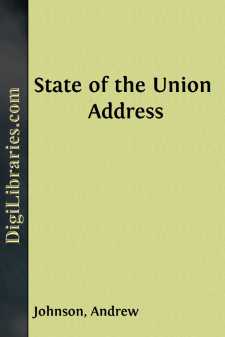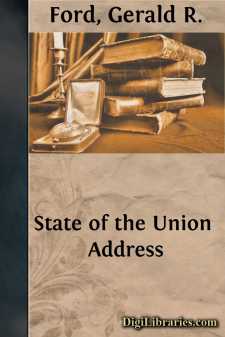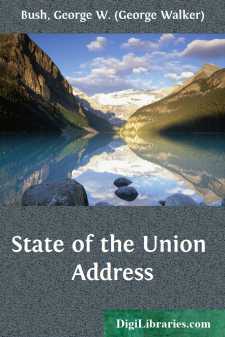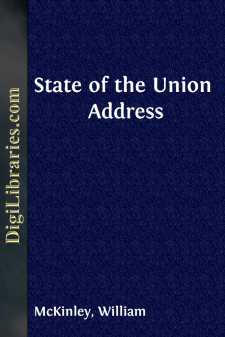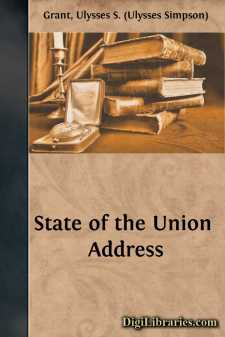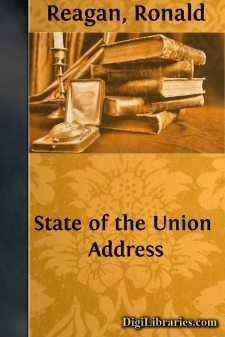Political Science
- Conspiracy & Scandal Investigations 1
- Constitutions 7
- Economic Conditions 10
- General 46
- Government 6
- History & Theory
- Peace 1
History & Theory Books
Sort by:
by:
Andrew Johnson
Fellow-Citizens of the Senate and House of Representatives: To express gratitude to God in the name of the people for the preservation of the United States is my first duty in addressing you. Our thoughts next revert to the death of the late President by an act of parricidal treason. The grief of the nation is still fresh. It finds some solace in the consideration that he lived to enjoy the highest...
more...
BRIEF HISTORY OF THE TWENTY-FIFTH REGIMENT, C. V. The Twenty-fifth Regiment, Connecticut Volunteers, (George P. Bissell, Colonel), was recruited in Hartford and Tolland Counties, in the fall of 1862. The regiment was composed of the very best material, being almost exclusively young men impelled by patriotic motives, and from the first they took a high stand for efficiency and good discipline. Later in...
more...
HISTORY'S PROVING GROUND he modern newspaper through its intensive, minute and zealous activities in searching out, presenting and interpreting each day the news of the entire world, is tracing with unerring accuracy the true and permanent picture of the present. This picture will endure as undisputed history for all time. Let us concede that the newspaper writer sometimes, in the passion of the...
more...
by:
Gerald R. Ford
Mr. Speaker, Mr. Vice President, Members of the 94th Congress, and distinguished guests: Twenty-six years ago, a freshman Congressman, a young fellow with lots of idealism who was out to change the world, stood before Sam Rayburn in the well of the House and solemnly swore to the same oath that all of you took yesterday—an unforgettable experience, and I congratulate you all. Two days later, that...
more...
by:
Woodrow Wilson
Gentlemen of the Congress: In pursuance of my constitutional duty to "give to the Congress information of the state of the Union," I take the liberty of addressing you on several matters which ought, as it seems to me, particularly to engage the attention of your honorable bodies, as of all who study the welfare and progress of the Nation. I shall ask your indulgence if I venture to depart in...
more...
Thank you very much. Mr. Speaker, Vice President Cheney, members of Congress, distinguished guests, fellow citizens: As we gather tonight, our nation is at war, our economy is in recession, and the civilized world faces unprecedented dangers. Yet the state of our Union has never been stronger. (Applause.) We last met in an hour of shock and suffering. In four short months, our nation has comforted the...
more...
Woodrow Wilson named the first volume of his History of the United States "The Swarming of the English." We might go further and compare the colonization and expansion in the New World to a fissioning process in which individual atoms are torn loose from a former pattern of coherence and fused into new and strange patterns. The United States, indeed, is still in the process of fusion following...
more...
by:
William McKinley
To the Senate and House of Representatives: It gives me pleasure to extend greeting to the Fifty-fifth Congress, assembled in regular session at the seat of Government, with many of whose Senators and Representatives I have been associated in the legislative service. Their meeting occurs under felicitous conditions, justifying sincere congratulation and calling for our grateful acknowledgment to a...
more...
To the Senate and House of Representatives: In coming before you for the first time as Chief Magistrate of this great nation, it is with gratitude to the Giver of All Good for the many benefits we enjoy. We are blessed with peace at home, and are without entangling alliances abroad to forebode trouble; with a territory unsurpassed in fertility, of an area equal to the abundant support of 500,000,000...
more...
by:
Ronald Reagan
Mr. Speaker, Mr. President, distinguished Members of the Congress, honored guests, and fellow citizens: Today marks my first State of the Union address to you, a constitutional duty as old as our Republic itself. President Washington began this tradition in 1790 after reminding the Nation that the destiny of self-government and the "preservation of the sacred fire of liberty" is "finally...
more...


